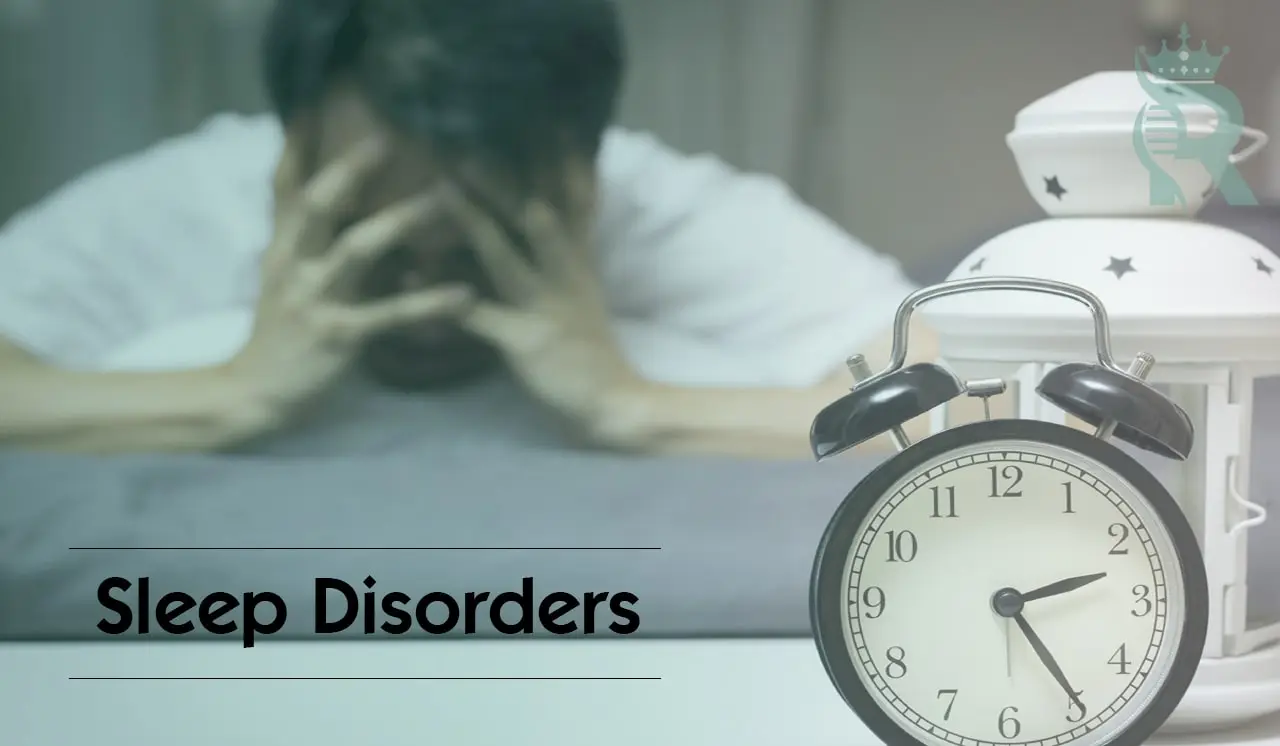Awake Alert, Personal Care
Sleep Disorders
What are sleep disorders?
Sleep disorders are a group of conditions that affect your ability to sleep well on a regular basis. Sleep disorders are increasingly common in the United States, whether the cause is health problems or excessive stress.
In fact, more than a third of American adult’s report sleeping less than 7 hours per 24-hour period. More than 70% of high school students report sleeping less than 8 hours per weeknight.
Most people experience sleep problems from time to time due to stress, busy schedules and other external influences. may indicate a sleep disorder.
Certain types of sleep disorders can make it difficult to fall asleep and cause you to feel extremely tired throughout the day. Lack of sleep can negatively impact your energy, mood, focus, and overall health.
If the sleep disturbance is not caused by another disorder, treatment usually combines therapy and lifestyle changes.
If a sleep disorder is suspected, it is important to seek immediate diagnosis and treatment. If left untreated, the negative effects of sleep disorders can have other health consequences.
It can also affect work performance, strain relationships, and impair the ability to carry out day-to-day activities.
What types of sleep disorders are there?
There are many types of sleep disorders. Other underlying conditions can also be the cause.
Insomnia
Insomnia is to the inability to fall asleep or stay asleep. It can be caused by jet lag, stress or anxiety, hormones, digestive problems, or it can be a symptom of another medical condition.
Insomnia can cause general health and quality of life problems and can cause:
- Panic
- Difficulty concentrating
- Hypersensitivity
- Weight gain
- Poor performance at work or school
Unfortunately, insomnia is very common. Up to 50% of American adults will experience it at some point in their life.
This disorder is more common in older people and women.
Insomnia is generally classified into one of three types:
- Chronic, if insomnia occurs regularly for at least 1 month
- Intermittent, if insomnia occurs regularly
- Transient, when insomnia only lasts a few nights at a time
Sleep Apnea
Sleep apnea is characterized by the cessation of breathing during sleep. It is a serious disease that reduces the absorption of oxygen in the body. It can also make you wake up at night.
There are two types:
- In obstructive sleep apnea, the airflow stops because the airways are blocked or too narrow.
- Central sleep apnea is a connection problem between the brain and the muscles that control breathing.
Parasomnia
Parasomnia is a type of sleep disorder that causes abnormal movements and behaviors during sleep. They understand:
- somnambulism
- Talk while sleeping
- Moans
- Nightmare
- Wet the bed
- Clench your teeth or clench your jaw
Restless leg syndrome
Restless Leg Syndrome (RLS) is an urge to move the legs. This urge is sometimes accompanied by a tingling sensation in the legs. These symptoms can occur during the day but are more common at night.
RLS is often associated with certain health conditions such as attention deficit hyperactivity disorder (ADHD) and Parkinson’s disease, but the exact cause is not always known.
Narcolepsy
Narcolepsy is characterized by “sleep attacks” that occur while you are awake. It means suddenly feeling extremely tired and falling asleep without warning.
The disorder can also cause sleep paralysis, which can make you physically immobile soon after you wake up. Narcolepsy can occur on its own, but certain neurological disorders such as multiple sclerosis are sometimes associated with it. Check out how Waklert 150 and Modalert 200 can help you to treat it.
What are the symptoms of sleep disorders?
Symptoms depend on the severity and type of sleep disturbance. It may also differ if the sleep disturbance is the result of another condition.
However, common symptoms of sleep disorders include:
- Difficulty falling asleep or staying asleep
- fatigue during the day
- A strong urge to take a nap during the day
- abnormal breathing pattern
- an unusual or unpleasant urge to move when falling asleep
- Abnormal movements or other experiences during sleep
- Involuntary changes in sleep/wake schedule
- irritability or anxiety
- Poor performance at work or school
- lack of concentration
- the Depression
- weight gain
What are the causes of sleep disorders?
There are many conditions, diseases and ailments that can cause sleep problems. In many cases, sleep disorders develop due to underlying health conditions.
Allergies and breathing problems
Allergies, colds, and upper respiratory infections can make nocturnal breathing difficult. The inability to breathe through the nose can also lead to sleep disturbances.
Frequent urination
Nocturia or frequent urination can cause you to wake up in the middle of the night and interfere with sleep. Hormonal imbalances and urinary tract disorders can contribute to the development of this condition.
Chronic pain
Constant pain makes it difficult to fall asleep. It also wakes me up after falling asleep. The most common causes of chronic pain include
- Arthritis
- Chronic Fatigue Syndrome
- Fibromyalgia
- Inflammatory bowel disease
- Persistent headache
- Persistent back pain
In some cases, sleep disturbances can even make chronic pain worse. For example, doctors believe that the development of fibromyalgia may be linked to sleep problems.
Stress and anxiety
Stress and anxiety often negatively impact sleep quality. It may be difficult to fall asleep or stay asleep. Nightmares, sleepiness, and sleepwalking can also interfere with sleep.
How are sleep disorders treated?
Treatment of sleep disorders depends on the type and underlying cause. However, it generally involves a medical treatment and lifestyle changes.
Medical Treatment
Treatment of sleep disorders are included any of the following:
- Sleeping pills
- Melatonin supplements
- Allergy and cold medicine
- Medicines for underlying health problems
- Breathing devices or surgery (usually for sleep apnea)
- Dental protection (usually for grinding teeth)
lifestyle change
Lifestyle adjustments, especially when combined with therapy, can significantly improve sleep quality.
- Add more vegetables and fish to your diet and reduce your sugar intake
- Reduce stress and anxiety with exercise and stretching
- Create a regular sleep schedule and stick to it
- Reduce your water intake before bedtime
- Limit your caffeine intake, especially in the late afternoon or early evening
- reduce the consumption of tobacco and alcohol
- Eat a small, low-carb meal before bed
- Maintain a healthy weight as recommended by your doctor
Going to bed and waking up at the same time each day can also dramatically improve sleep quality. While it can make you want to sleep on weekends, this can make it harder to get up and fall asleep on weekdays.

